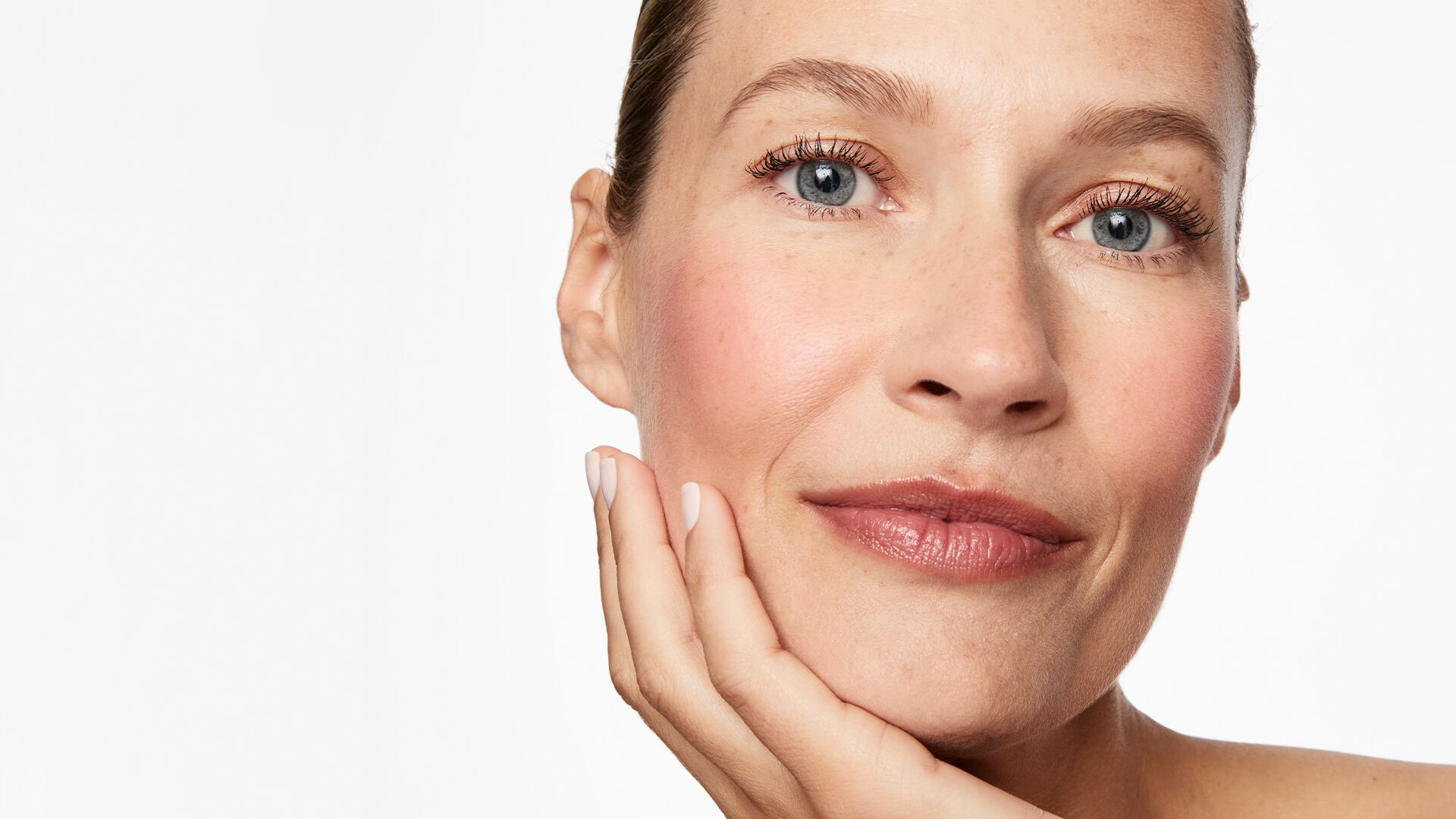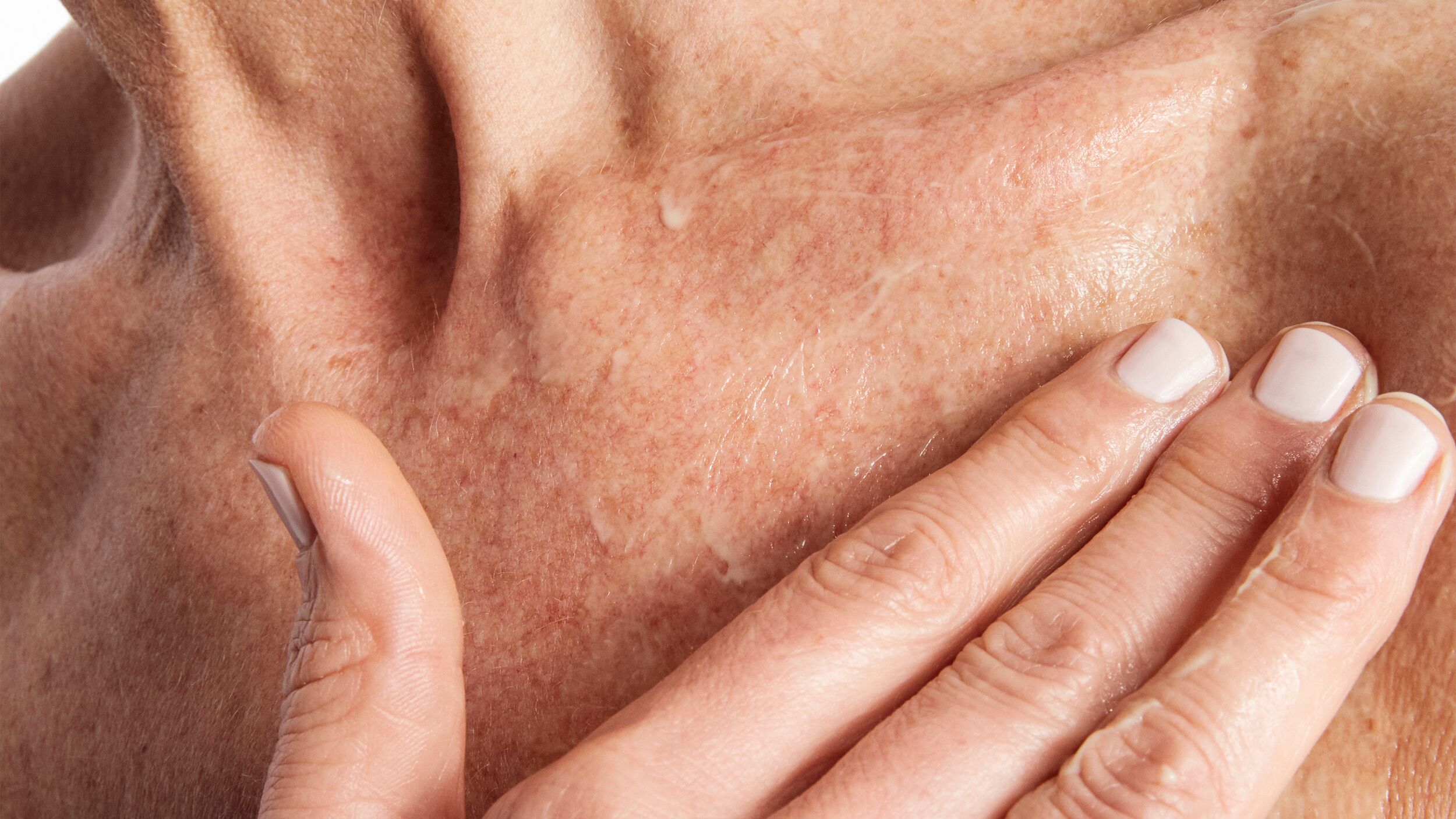
Despite its buzz-worthy name, inflammaging is far from a fleeting fad. In fact, since the term was first coined by scientists in 2000, it’s been the focus of international research and is now widely considered to be the hallmark of the ageing process, playing a pivotal role in the development of chronic diseases, cognitive decline and reduced mobility. It also plays a part in how quickly your skin shows signs of ageing, including wrinkles, loss of elasticity and lack of radiance. Here’s how you can determine how fast you might be inflammaging - and what you can do to put the brakes on.
What is Inflammaging?
Inflammaging refers to the chronic, low-grade inflammation that develops with age characterised by an increasing level of pro-inflammatory markers within cells and tissues.
Unlike acute inflammation (which occurs when your body is fighting off an infection or injury), inflammaging is subtle, persistent, and ultimately, destructive. You probably don’t even notice it day to day, but it's there nonetheless, quietly wreaking havoc on your cells, tissues, and organs over time.
The level of chronic inflammation is influenced by a combination of factors from genetics to lifestyle factors like poor diet, stress, lack of sleep, environmental toxins, meaning it is possible to reduce the rate of inflammaging to some degree.
Signs Of Inflammaging
Due to the fact that inflammaging affects nearly every system in the body, the early signs can be subtle and nonspecific, including everything from fatigue, joint stiffness and brain fog to frequent illness and digestive issues. In terms of your skin, you might notice more fine lines, a loss of elasticity and a dull complexion that’s prone to irritation and breakouts.
How to Mitigate Inflammaging
Your best bet is to take a preventative approach, rather than waiting for obvious symptoms to occur (by which time, the degree of inflammaging would be very significant). Here's how:
1. Adopt an Anti-Inflammatory Diet
The gut microbiome is a major player when it comes to inflammaging, due to its ability to release inflammatory molecules, and crosstalk with other organs and systems.Your diet helps to dictate how healthy and robust your gut microbiome is. Eating a balanced diet rich in anti-inflammatory foods that are high in fibre and antioxidants can help counteract chronic inflammation. Try upping your portions of the following foods:
Omega-3 Fatty Acids: Found in fatty fish (like salmon), flaxseeds, and walnuts
Antioxidant-Rich Foods: Berries, leafy greens, nuts, seeds, and colourful vegetables
Whole Grains: Quinoa, brown rice, and oats will help maintain stable blood sugar levels and reduce inflammation.
Avoid foods known to promote inflammation, such as ultra-processed foods, processed sugars, refined carbohydrates, and excessive amounts of red meat.
2. Prioritise Sleep
Chronic sleep deprivation is a major contributor to systemic inflammation. Your body uses sleep as a time to repair and regenerate. Without adequate rest, you’ll not only accelerate inflammaging but also notice visible signs like under-eye bags, dark circles, and dull skin. Aim for 7-9 hours of restful sleep each night to allow your body to recover properly.
3. Manage Stress
Chronic stress triggers the release of inflammatory hormones such as cortisol. Prolonged exposure to these hormones can increase inflammation throughout the body and skin. Incorporate stress-relieving practices into your daily routine—whether it’s meditation, yoga, deep breathing exercises, or simply spending time in nature.
4. Exercise Regularly
Moderate, consistent exercise is one of the most effective ways to reduce inflammation. Regular movement helps regulate immune function and supports circulation, delivering more oxygen and nutrients to your skin and other organs. Aim for at least 150 minutes of moderate-intensity exercise per week, such as brisk walking, swimming, or cycling.
5. Skincare: Protect and Repair
While lifestyle changes are essential, the right skincare can also play a role in combating inflammaging by supporting healthy functioning of the skin. Focus on:
Sun Protection: One of the biggest contributors to inflammaging in the skin is sun damage. Wearing sunscreen daily all year round helps protect against UV-induced damage. The Traceless Mineral SPF30 is formulated with Micronized Zinc Oxide, the broadest-spectrum FDA-approved physical sunscreen ingredient, as well as Indian Beech Seed extract, a powerful antioxidant which helps to shield skin from environmental stress.
Hydration and Repair: Look for products that hydrate, soothe, and repair the skin barrier. Ingredients like Hyaluronic Acid, Ceramides, and Niacinamide can help reduce inflammation and improve skin resilience. Layer in a hydrating serum like Triple Hyaluronic Acid Lipopeptide Serum beneath your moisturiser, and if your skin is dry and/or sensitive - or just as an extra skincare ‘insurance policy’ - squeeze open a Superactive Capsules Essential Ceramides+ capsule and apply over serum/before moisturiser.
Ceramides are like the mortar that sits between the skin’s ‘building’ blocks’, helping to strengthen and repair your skin barrier, which can be compromised by environmental stress as well as chronological aging. And finally, Superdrops Brightening Niacinamide contain 10% pure Niacinamide which also helps strengthen skin, as well as promoting elasicity, clarity and radiance.Antioxidants: Topical antioxidants, such as Vitamin C, help neutralise the free radicals that contribute to inflammaging and skin damage. Our Superdrops Vitamin C C-Suite Rapid Action Power Brightener combine 15% Vitamin C with Tranexamic Acid for powerhouse brightening action on dull, uneven, scarred, or UV-damaged skin.


